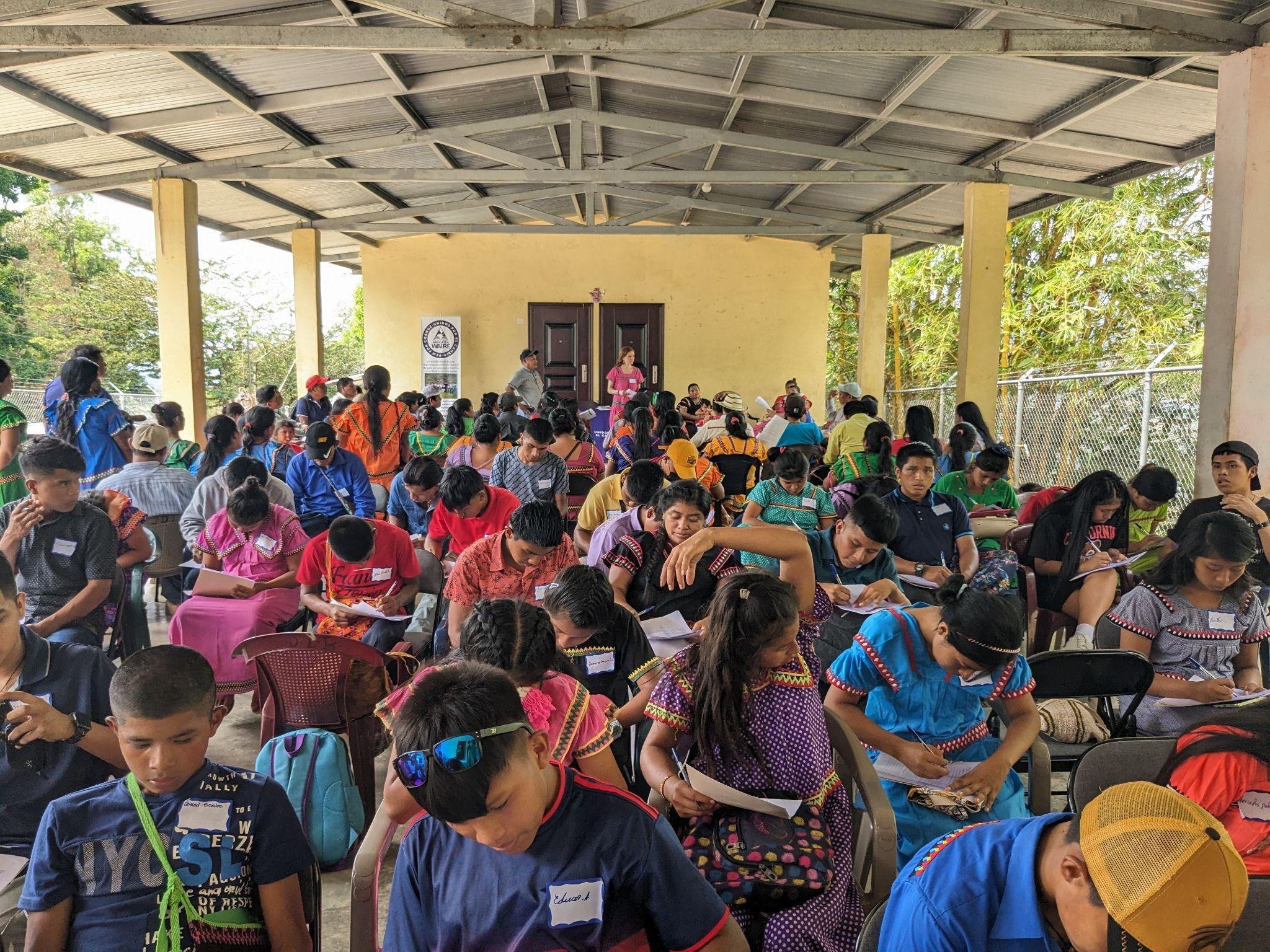"Esta beca no es para ti, esta beca es para la Comarca."
This scholarship is not for you, this scholarship is for the Comarca.
When Ramon Pineda, one of Few for Change’s volunteers on the ground in the Comarca Ngäbe-Buglé, was in high school, he was given a scholarship to attend university. This phrase “this scholarship is not for you, this scholarship is for the Comarca,” is exactly what Ramon was told when he received the scholarship—it was his job to take the scholarship and do something with it that would benefit the Comarca and Panama. He took this entirely to heart, and is now committed to ensuring that our students do the same.
Ramon, along with our two other volunteers, Doris and Agripina, form a team that has been pivotal to the success of Few for Change in the Comarca. While the rest of the Few for Change team is based in the U.S., Ramon, Agripina and Doris ensure that everything is running smoothly on the ground. One of the best parts of our annual trip to Panama is meeting with our volunteers to hear their feedback about the program, how the students are doing, and discuss new opportunities for community collaboration and expansion.
Ari, Brooks, Tim and Katie recently returned from Few for Change’s annual trip to Panama. The highlight of the trip is always the entrega ceremony with our students and volunteers. Few for Change started the annual entrega ceremony last year when four of us headed down to Panama to meet our students for the first time, present them with their scholarships and meet with families and volunteers to gather feedback about where the program was working well and where we could make improvements.
As our students arrived for the ceremony this year, we realized that we barely recognized a few of them—they had grown so much since we last saw them! We followed the same basic structure as our first ceremony, but had learned a lot about how everything should be organized and everything flowed much more smoothly. After the whole group, including students, families and volunteers, had gathered, we did a brief overview of Few for Change and presented each of the students with a certificate. This year, we had our first three students graduate from high school: Aquilino, Karmen and Rubiela. One of our Few for Change members organized a separate graduation ceremony for these students when she was visiting in December. Aquilino, however, re-joined us for the entrega ceremony because he is currently enrolled in university and has become Few for Change’s first university student! Aquilino started with Few for Change during our first year—we’re so proud to see him graduate and to see the great young man that he’s grown into over the past few years. We were extremely privileged to be joined at the entrega by Olmedo Gonzales, a young man from the Comarca who had finished his university studies and is currently writing his thesis. In an region where 90% of students do not finish high school, Olmedo inspired the students and families by speaking of his experience—at 23, he’s had to fight and endure more than I can even imagine to be able to continue studying (look out for a blog entry on Olmedo’s talk!).
After the initial introduction, we split into two groups: Brooks and Ari met with the parents to discuss feedback on the program while Tim and Katie took the students to a different room. We spent the first few minutes playing the human knot game—attempting to break down some of the awkwardness that comes naturally with a group of middle and high school students who don’t know each other particularly well. One of our hopes for the program is that the students can offer support to each other during the school year—each time we visit, we try to break down the barriers and build as much of a group dynamic as possible in the short time we’re there. The students wrote about and discussed their favorite classes, what was particularly hard for them in school, and what they were most proud of about being Ngäbe. Edgar wrote “to be Ngäbe is to speak, to carry the tradition and the blood of people who fought and died to avoid being conquered and I feel proud of my people that we now have our own customs and language.” Olmedo helped us facilitate the discussion about the most difficult aspects of school and was able to offer advice from his own life to students who were experiencing similarly difficult economic and family situations.
Hearing our students talk about their experiences in life and school, it’s so evident how hard they work every day to stay in school and to help support their families and siblings. We’re so proud of what they have accomplished and will continue to accomplish as they learn, grown and give back to their communities.
















